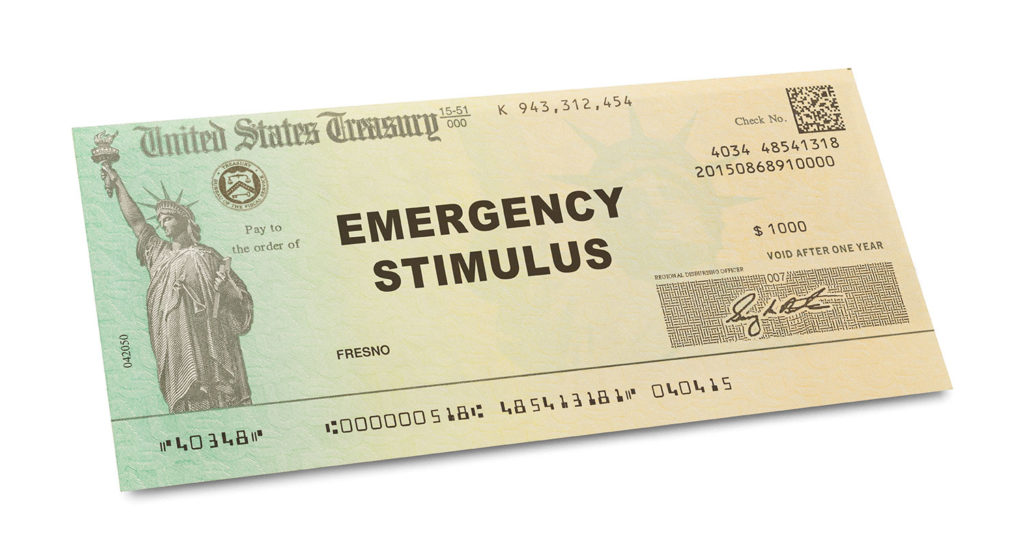The coronavirus pandemic has affected virtually every facet of American life and severely impacted the markets and economy. Congress and the federal government have acted to help individuals and businesses get through this difficult time. Most recently, President Trump signed the Coronavirus Aid, Relief, and Economic Security Act (CARES) Act on March 27, 2020. The House passed the bill by voice vote earlier that day, and the Senate unanimously passed it on March 25. The $2.2 trillion bipartisan bill, the most expensive legislation ever enacted, resulted from negotiations between Treasury Security Steven Mnuchin and Congressional leaders on both sides of the aisle. The following are highlights of many of the federal relief opportunities created thus far which may benefit you.
Tax Relief for Individuals:
- Extension of federal tax filing due date. The IRS postponed to July 15, 2020 the due date for both filing an income tax return and for making income tax payments originally due April 15, 2020. The postponement is automatic. Payments that may be postponed are limited to federal income tax payments in respect of a taxpayer’s 2019 taxable year and federal estimated income tax payments due on April 15, 2020 for a taxpayer’s 2020 taxable year. The extension is available to all taxpayers, including individuals, trusts and estates, corporations and other non-corporate entities, including those who pay self-employment tax. As a result of the extension, any interest, penalty, or addition to tax for failure to file or pay tax will not begin to accrue until July 16, 2020.
- IRA contribution deadline extended. The deadline for making 2019 IRA contributions has also been extended until July 15, 2020.
- HSA and MSA contribution deadline extended. The deadline for making 2019 contributions to health savings accounts (HSAs) and Archer medical savings accounts (MSAs) has been extended until July 15, 2020.
- Recovery rebates. Cash payments called “recovery rebates” are available to U.S. residents with income below certain levels who cannot be claimed as a dependent of another taxpayer and who have a Social Security Number. Technically, the rebates are advance refunds of credits against 2020 taxes. The rebate amounts are $1,200 for individuals and $2,400 for married joint filers, with an additional $500 for each qualifying child under age 17. The amount of each rebate phases out by $5 for each $100 of adjusted gross income (AGI) greater than $75,000 (single filers) or $150,000 (married joint filers), based upon AGI as reported on the 2018 federal tax return (or 2019 tax return, if filed). Thus, rebates are fully phased out at $99,000 (single filers) and $198,000 (married joint filers). Individuals do not need to do anything to receive the rebate; the IRS will make payments electronically, if possible, and will send a notice (to the taxpayer’s last known address) within 15 days of payment stating the payment amount and method.
- Required minimum distributions (RMDs). All 2020 RMDs from IRAs and retirement plans are waived, including RMDs from inherited IRAs (both traditional and Roth). The RMD waiver includes 2019 RMDs that were previously due by April 1, 2020.
- Tax-favored early distributions from retirement plans. The CARES Act waives the 10% penalty applicable to early distributions for coronavirus related distributions up to $100,000 from IRAs and qualified defined contribution retirement plans such as 401(k), 403(b), and governmental 457(b) plans. A coronavirus related distribution is a distribution made during calendar year 2020 to an individual (or spouse) diagnosed with COVID-19 by a CDC-approved test, or to one who experiences adverse financial consequences as a result of quarantine, business closure, layoff, or reduced hours due to the coronavirus. In addition, any income attributable to an early withdrawal is subject to income tax over a 3-year period unless the individual elects to have it all included in their 2020 income. Finally, individuals may recontribute the withdrawn amounts back into an IRA or plan within 3 years without violating the 60-day rollover rule or annual contribution limits.
- Retirement Plan Loans. Before the CARES Act, a participant could borrow from a retirement plan the lesser of 50% of the vested account balance or $50,000 (reduced by other outstanding loans). Beginning March 27, 2020 through 180 days thereafter, the maximum loan amount increases to the lesser of 100% of the vested account balance or $100,000 (reduced by other outstanding loans). In addition, participants who had outstanding loans as of March 27, 2020 may defer for one year any payments normally due from March 27 through December 31, 2020.
- Charitable Contributions. Individuals who claim the standard deduction may also claim a new above-the-line deduction up to $300 for cash contributions made in 2020 to certain charities. Individuals who itemize deductions and make cash contributions in 2020 to certain charities may claim an itemized deduction up to 100% of AGI (increased from 60%). Eligible charities are those described in Section 170(b)(1)(A) of the Internal Revenue Code (for instance churches, educational organizations, and organizations providing medical or hospital care or research) and do not include donor advised funds or Section 509(a)(3) supporting organizations.
- Student Loans. Payments (principal and interest) on federal student loans are suspended through September 30, 2020 without penalty. Interest will not accrue on these loans during this suspension period. In addition, from March 27 through December 31, 2020, an employer may contribute up to $5,250 annually toward an employee’s student loans, and such payment will be excluded from the employee’s income.
- Unemployment Benefits. Unemployment benefits have been expanded to assist those who have lost their job during the current economic crisis. Because unemployment benefits are administered by the states (although each state follows the same guidelines established by federal law), check with your state program to determine eligibility requirements and how to file a claim.
As you can see, the federal government has created many ways individuals may receive assistance to get through current financial difficulties. Additionally, most states have provided their own relief such as a delay of the state income tax filing deadline or a temporary grace period for making mortgage payments. Please let me know if you have any questions on the above relief or would like to discuss the effect of the current economic crisis on your portfolio or financial situation.
We’re here . . . Best wishes to you and your loved ones,

Reprinted from information provided by The Cetera Financial Group
This is provided for informational purposes only and intended as a summary and not legal or accounting advice. Please consult the law in its entirety and discuss at greater lengths with your personal legal and tax professionals to determine how the stimulus bill can help you. Additional information can be found on IRS Coronavirus Tax Relief page.

